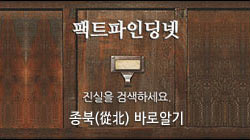Plot Analysis
In telling the story of a fatally indecisive character’s inability to choose the proper course to avenge his father’s death, “Hamlet” explores questions of fate versus free will, whether it is better to act decisively or let nature take its course, and ultimately if anything we do in our time on earth makes any difference. Once he learns his uncle has killed his father, Hamlet feels duty-bound to take decisive action, but he has so many doubts about his situation and even about his own feelings that he cannot decide what action to take.
The conflict that drives the plot of “Hamlet” is almost entirely internal: Hamlet wrestles with his own doubt and uncertainty in search of something he believes strongly enough to act on. The play’s events are side-effects of this internal struggle. Hamlet’s attempts to gather more evidence of Claudius’s guilt alert Claudius to Hamlet’s suspicions, and as Hamlet’s internal struggle deepens, he begins to act impulsively out of frustration, eventually murdering Polonius by mistake. The conflict of Hamlet is never resolved: Hamlet cannot finally decide what to believe or what action to take. This lack of resolution makes the ending of “Hamlet” especially horrifying: nearly all the characters are dead, but nothing has been solved.
The play’s exposition shows us that Hamlet is in the midst of three crises: his nation is under attack, his family is falling apart, and he feels deeply unhappy. The Ghost of the old king of Denmark appears on the castle battlements, and the soldiers who see it believe it must be a bad omen for the kingdom. They discuss the preparations being made against the threat from the Norwegian prince, Fortinbras.
플롯 분석
치명적으로 우유부단한 성격의 인물이 아버지의 죽음에 대한 복수를 하기 위해서 적절한 진로(course)를 선택할 수 있는 능력이 없는 이야기를 함에 있어서, 'Hamlet'은 숙명(fate) 대 자유의지인지, 단호하게 행동하는 것이 더 좋은지 아니면 자연이 그 진로를 취하도록 방임하든지, 그리고 궁극적으로 세상에서 우리에게 주어진 시간 안에 우리가 행동하는 어느 것이라도 효과(difference)가 있는지 없는지의 문제들을 탐색하고 있다. 그의 숙부가 그의 아버지를 죽였다는 것을 알았을 때 Hamlet은 결정적인 행동을 취해야 한다고 의무적으로 느끼지만 그는 그가 처한 상황과 심지어 자신의 감정에 대해서도 너무나 많은 의심을 가지고 있어서 그는 무슨 행동을 취할지를 결정할 수가 없다.
'햄릿'의 줄거리를 몰고 가는 갈등은 거의 전적으로 심리적(internal)이다: 행동할 근거가 충분히 된다고 그가 믿는 어떤 것을 찾으면서 그는 자기 자신의 의심과 불확실성과 씨름한다. 극의 사건들은 이 내적 갈등의 부산물들이다. Claudius의 범죄에 대한 더 많은 증거를 수집하려는 Hamlet의 시도는 Hamlet의 의심(Claudius에 대한)에 대해서 Claudius를 긴장시키고 Hamlet의 내적 갈등이 심화됨에 따라 그는 좌절감에서 충동적으로 행동하기 시작하고 마침내 착오로 Polonius를 살해하게 된다. Hamlet의 갈등은 결코 해결되지 않는다: Hamlet은 결국 무엇을 믿어야 할지 무슨 행동을 취해야 할지를 결정할 수가 없다. 이런 결심의 부족은 '햄릿'의 결말을 특별히 무섭게 한다: 거의 모든 인물들이 죽고 아무것도 해결되지 않는다. 극의 설명은 Hamlet이 세 가지 위기 가운데에 처해 있다는 것을 보여준다: 그의 나라는 공격을 받고 있고, 그의 가족은 떨어져 나가고, 그리고 그는 매우 불행함을 느낀다. 덴마크의 늙은 왕의 유령이 성의 난간에 나타나고 그것을 보는 군인들은 그것은 왕국에 대한 나쁜 징조임에 틀림없다고 믿는다. 그들은 노르웨이 왕자 Fortinbras의 위협에 대항해서 취해지고 있는 준비상황에 대해서 논의를 한다.
* 해설
지난 1000년간 세계에서 가장 위대한 극작가로 평가되는 William Shakespeare(1564-1616)는 영국의 Stratford-upon-Avon에서 부유한 상인의 아들로 태어나서 매우 훌륭한 인문학교에 다녔으나 14세 때에 家勢(가세)가 기울어 학업을 중단하게 되었다.
18세 때에 8년 연장자인 Anne Hathaway와 결혼했다. 그는 1588년에 런던으로 와서 배우와 극작가로서 일했다. 그는 당대에 가장 성공적인 극작가가 되었고 후년에는 고향에서 대부분의 시간을 보내다가 1616년 4월 23일에 죽었다. 이 날은 그의 생일날이었다.
'Hamlet'은 'Othello', 'King Lear', 'Macbeth'와 함께 Shakespeare의 가장 위대한 四大悲劇(사대비극) 중의 하나이다. 'Hamlet'은 Shakespeare 劇(극) 중에서도 가장 많이 읽히고 가장 많이 공연되고 가장 많이 논의되는 작품이다. 'Hamlet'은 시대를 초월해 관객에게 즐거움을 주고 배우들에게는 열망의 配役(배역) 대상이 되고 있으며 교양인이라면 반드시 읽어야 될 고전 중의 고전이다.(계속)













 朴承用
朴承用







 트위터
트위터 페이스북
페이스북 미투데이
미투데이 요즘
요즘 네이버
네이버































